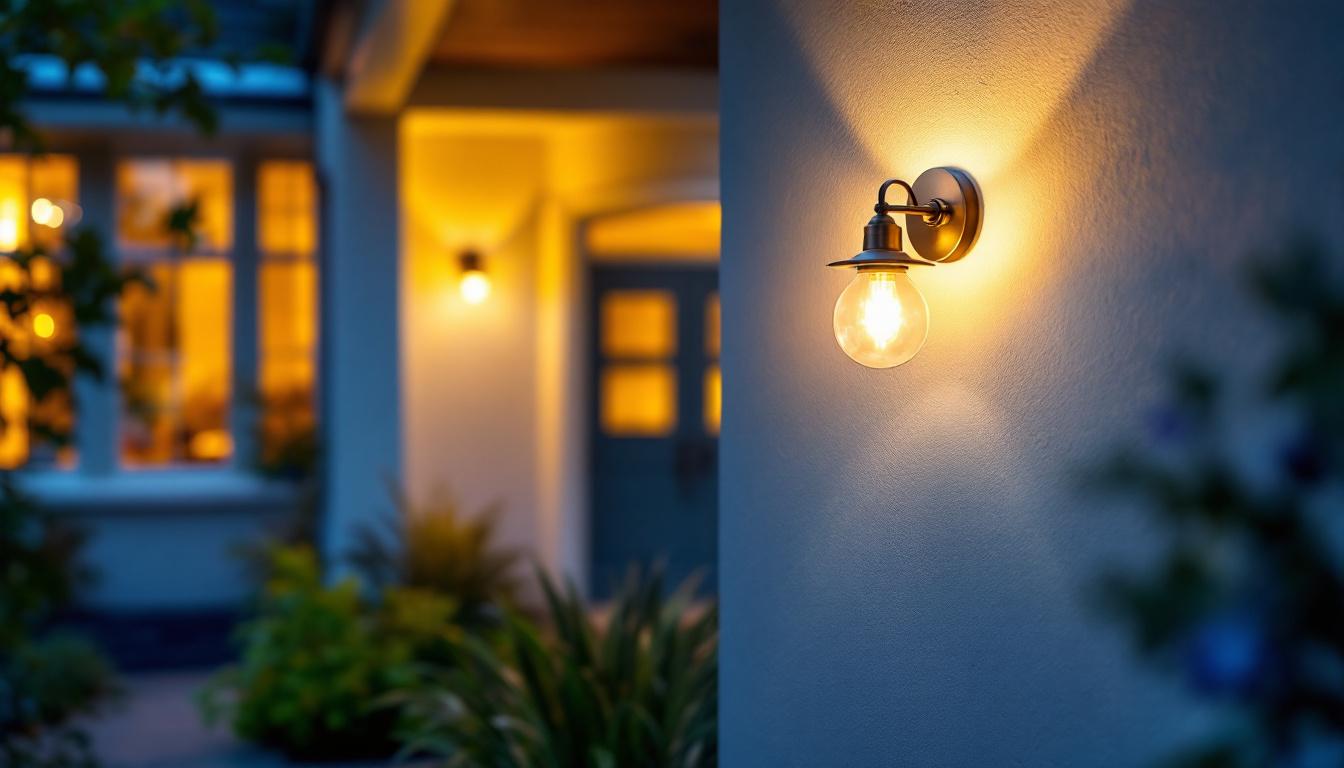
In the evolving landscape of outdoor lighting, solar lamps have emerged as a popular choice for both residential and commercial applications. For lighting contractors, understanding the advantages and considerations of solar lamps available at retailers like Walmart can enhance project offerings and client satisfaction. This article delves into the key points that lighting contractors should consider when integrating solar lamps into their projects.
Solar lamps utilize photovoltaic cells to convert sunlight into electricity, which powers LED lights. This technology has advanced significantly, making solar lamps more efficient, durable, and versatile than ever before. For lighting contractors, grasping the fundamentals of this technology is crucial for recommending the right products to clients. The growing emphasis on sustainability and energy efficiency has further propelled the adoption of solar lamps, making them an attractive option for both residential and commercial applications. With the increasing demand for eco-friendly solutions, understanding the nuances of solar technology can set contractors apart in a competitive market.
Solar lamps typically consist of several key components: solar panels, batteries, LED lights, and control systems. The solar panels collect sunlight during the day, charging the batteries that store energy for nighttime use. LED lights are favored for their energy efficiency and longevity, while control systems manage the operation of the lamp based on ambient light levels. Additionally, some modern solar lamps are equipped with motion sensors that enhance security by illuminating areas only when movement is detected. This feature not only conserves energy but also extends the lifespan of the lamp, making it an appealing choice for outdoor security lighting.
There are various types of solar lamps available, each designed for specific applications. Pathway lights, floodlights, and decorative lanterns are just a few examples. Understanding the differences can help contractors recommend the most suitable options based on the intended use and aesthetic preferences of their clients. For instance, solar pathway lights are ideal for illuminating walkways and gardens, creating a safe and inviting atmosphere for homeowners and guests alike. On the other hand, solar floodlights are perfect for larger areas that require bright illumination, such as driveways or parking lots, providing both safety and functionality.
Efficiency is a critical factor when selecting solar lamps. Factors such as the quality of the solar panel, battery capacity, and LED brightness all contribute to the overall performance of the lamp. Lighting contractors should assess these elements to ensure that the chosen products meet the lighting needs of their projects while providing reliable performance. Furthermore, advancements in solar technology, such as bifacial solar panels that capture sunlight from both sides, have significantly improved energy conversion rates. This means that even in less-than-ideal weather conditions, solar lamps can still perform effectively, offering peace of mind for clients concerned about reliability during cloudy days or winter months.
Solar lamps offer numerous benefits that make them an attractive option for both contractors and clients. From cost savings to environmental impact, these advantages can significantly influence purchasing decisions.
One of the primary benefits of solar lamps is their cost-effectiveness. Once installed, they require minimal maintenance and no electricity costs, making them an appealing option for budget-conscious clients. Contractors can highlight the long-term savings associated with solar lighting, which can be a significant selling point.
Solar lamps contribute to sustainability efforts by reducing reliance on fossil fuels. They harness renewable energy, which helps decrease carbon footprints. For environmentally conscious clients, this aspect can be particularly compelling, allowing contractors to position solar lamps as a responsible choice.
Another advantage of solar lamps is their ease of installation. Most solar lamps are designed for straightforward setup, often requiring no wiring or electrical expertise. This simplicity can save contractors time and labor costs, making solar lamps an efficient option for various projects.
While solar lamps offer many benefits, there are also considerations that lighting contractors must keep in mind. Understanding these factors can help ensure successful installations and satisfied clients.
The effectiveness of solar lamps is highly dependent on their location and the amount of sunlight they receive. Contractors should assess the intended installation site to ensure adequate exposure to sunlight throughout the day. Areas with heavy shade or obstructions may require alternative solutions or additional solar panels to enhance performance.
Battery life is another crucial consideration. The capacity and quality of the battery determine how long the solar lamp can operate after sunset. Contractors should choose products with reliable batteries that can withstand varying weather conditions, ensuring consistent performance for clients.
Investing in high-quality solar lamps is essential for long-term satisfaction. Contractors should look for products from reputable manufacturers that offer warranties, as this indicates confidence in the product’s durability and performance. A solid warranty can also provide peace of mind for clients, enhancing their overall experience.
Walmart offers a diverse range of solar lamps suitable for various applications, making it a convenient option for lighting contractors. Familiarity with popular models can aid in making informed recommendations to clients.
Pathway solar lights are ideal for illuminating walkways and gardens. They typically feature a sleek design and provide adequate brightness for safety and aesthetics. Contractors can suggest these lights for residential projects, enhancing curb appeal while ensuring safety for homeowners and guests.
For larger areas requiring significant illumination, solar flood lights are an excellent choice. These lights offer powerful brightness and can be used for security purposes or to highlight architectural features. Contractors should consider the wattage and lumens output when recommending flood lights to ensure they meet the specific needs of the project.
Decorative solar lanterns provide an aesthetic touch to outdoor spaces. They come in various styles and designs, making them suitable for patios, decks, and gardens. Contractors can leverage these options to appeal to clients looking for both functionality and style in their outdoor lighting solutions.
Proper installation is key to maximizing the performance of solar lamps. Lighting contractors should follow best practices to ensure that the lamps operate efficiently and effectively.
When installing solar lamps, placement is critical. Contractors should position the lamps in areas that receive direct sunlight for most of the day. Avoiding shaded locations will enhance the charging capabilities of the solar panels, leading to better performance at night.
For solar lamps that require mounting, ensuring secure installation is vital. Contractors should follow manufacturer guidelines for mounting heights and angles to optimize light distribution. A well-secured lamp will withstand wind and weather conditions, prolonging its lifespan.
Although solar lamps require minimal maintenance, regular checks can help ensure optimal performance. Contractors should advise clients to clean the solar panels periodically to remove dirt and debris that can hinder sunlight absorption. Additionally, checking battery performance and replacing batteries when necessary can extend the life of the solar lamp.
Educating clients about solar lamps is essential for ensuring satisfaction and proper use. Lighting contractors should communicate the benefits, limitations, and maintenance requirements of solar lamps to set realistic expectations.
Contractors can enhance client understanding by demonstrating the benefits of solar lamps during consultations. Providing visual aids or examples of successful installations can help clients grasp the advantages of solar lighting, making them more likely to invest in these solutions.
Clients may have concerns about the performance of solar lamps, especially in regions with limited sunlight. Contractors should be prepared to address these concerns by explaining how modern solar technology has improved efficiency and reliability, even in less-than-ideal conditions.
Offering maintenance guidance can empower clients to take care of their solar lamps effectively. Contractors should provide clear instructions on cleaning, battery replacement, and troubleshooting common issues. This proactive approach can enhance client satisfaction and reduce the likelihood of service calls.
The solar lighting industry continues to evolve, with new technologies and trends emerging regularly. Staying informed about these developments can help lighting contractors remain competitive and offer the best solutions to clients.
Smart solar technology is gaining traction, allowing users to control their solar lamps via mobile apps or smart home systems. This innovation enhances convenience and can lead to energy savings by allowing users to adjust settings based on their preferences. Contractors should keep an eye on these advancements to offer cutting-edge solutions to clients.
Advancements in battery technology are also shaping the future of solar lighting. Newer battery types promise longer life spans and faster charging times, making solar lamps even more reliable. Contractors should stay updated on these developments to recommend the most efficient products to clients.
As the push for renewable energy continues, integrating solar lighting with other renewable systems, such as wind or geothermal, may become more common. Contractors who understand how to combine these technologies can provide comprehensive solutions that maximize energy efficiency and sustainability.
Solar lamps represent a significant opportunity for lighting contractors to enhance their service offerings while promoting sustainability and cost savings. By understanding the technology, benefits, and considerations associated with solar lamps, contractors can make informed recommendations that meet client needs. As the industry continues to evolve, staying abreast of trends and advancements will ensure that lighting contractors remain competitive in a dynamic market. Embracing solar technology not only benefits contractors and clients but also contributes to a greener future.
Ready to elevate your lighting projects with the most efficient solar lamps on the market? Look no further than LumenWholesale, where we provide lighting contractors with the highest quality, spec-grade lighting products at unbeatable wholesale prices. Say goodbye to local distributor markups and hello to our vast selection that meets rigorous industry standards. With free shipping on bulk orders, LumenWholesale ensures you get the premium lighting you need at the best value — all with the convenience you deserve. Don’t miss out on the perfect blend of quality, affordability, and convenience. Visit Wholesale Lighting at the Best Value and start transforming your lighting solutions today.

Discover how choosing the right outdoor entry light fixtures can streamline operations for lighting contractors, saving both time and money.

Discover effective strategies for lighting contractors to tackle the challenges of integrating humidity sensor switches.

Discover why lighting contractors should be well-versed in ceiling fan installations.

Discover the essential guide to work lights string, featuring top resources and expert tips for lighting contractors.